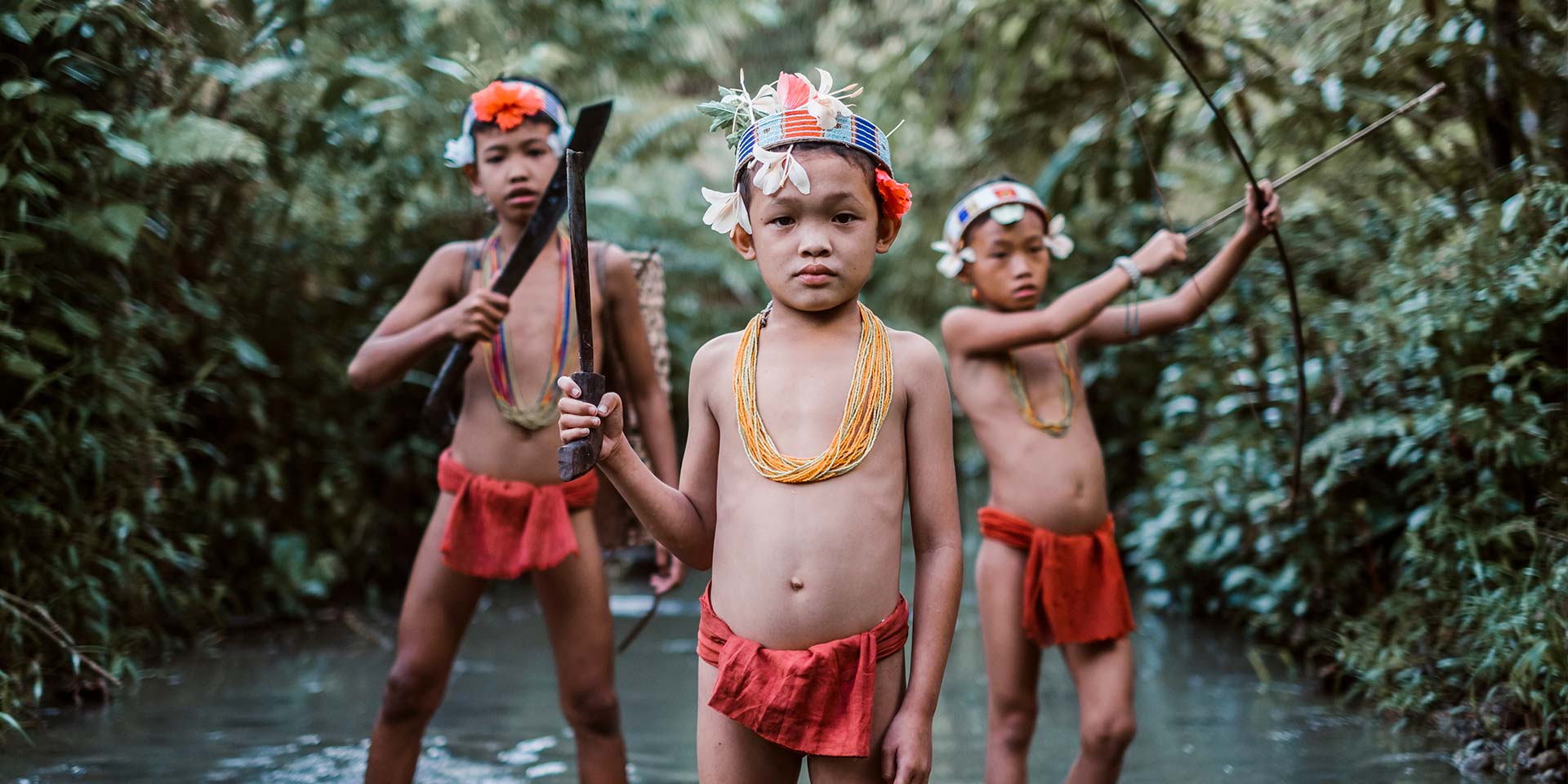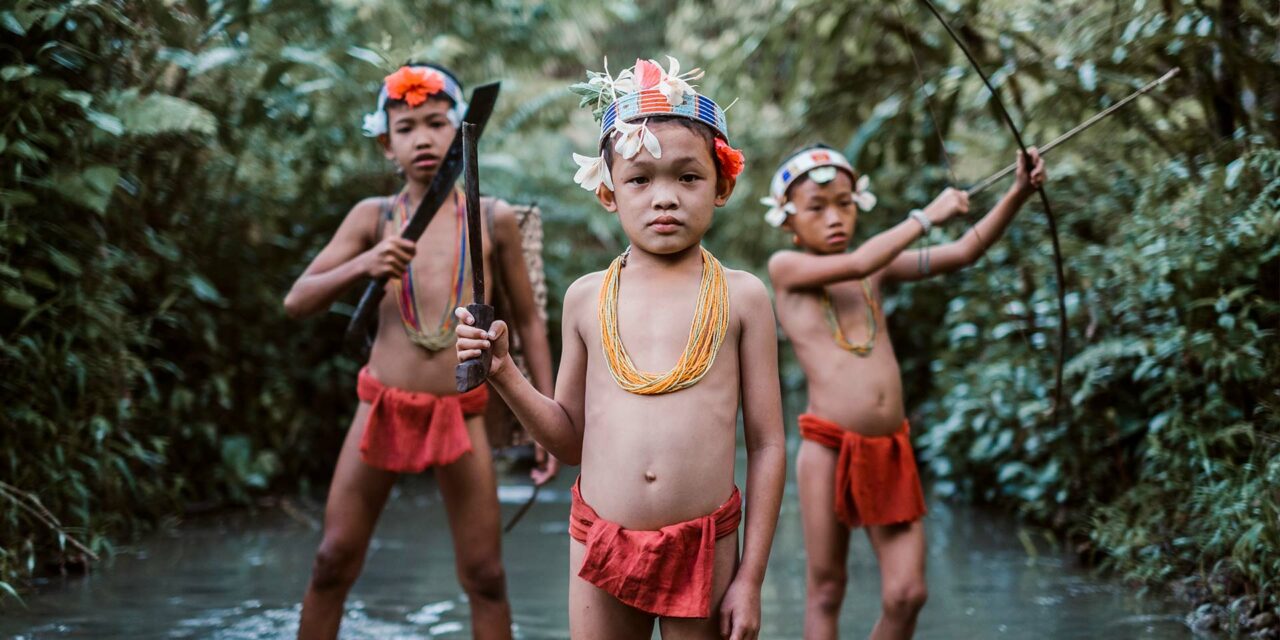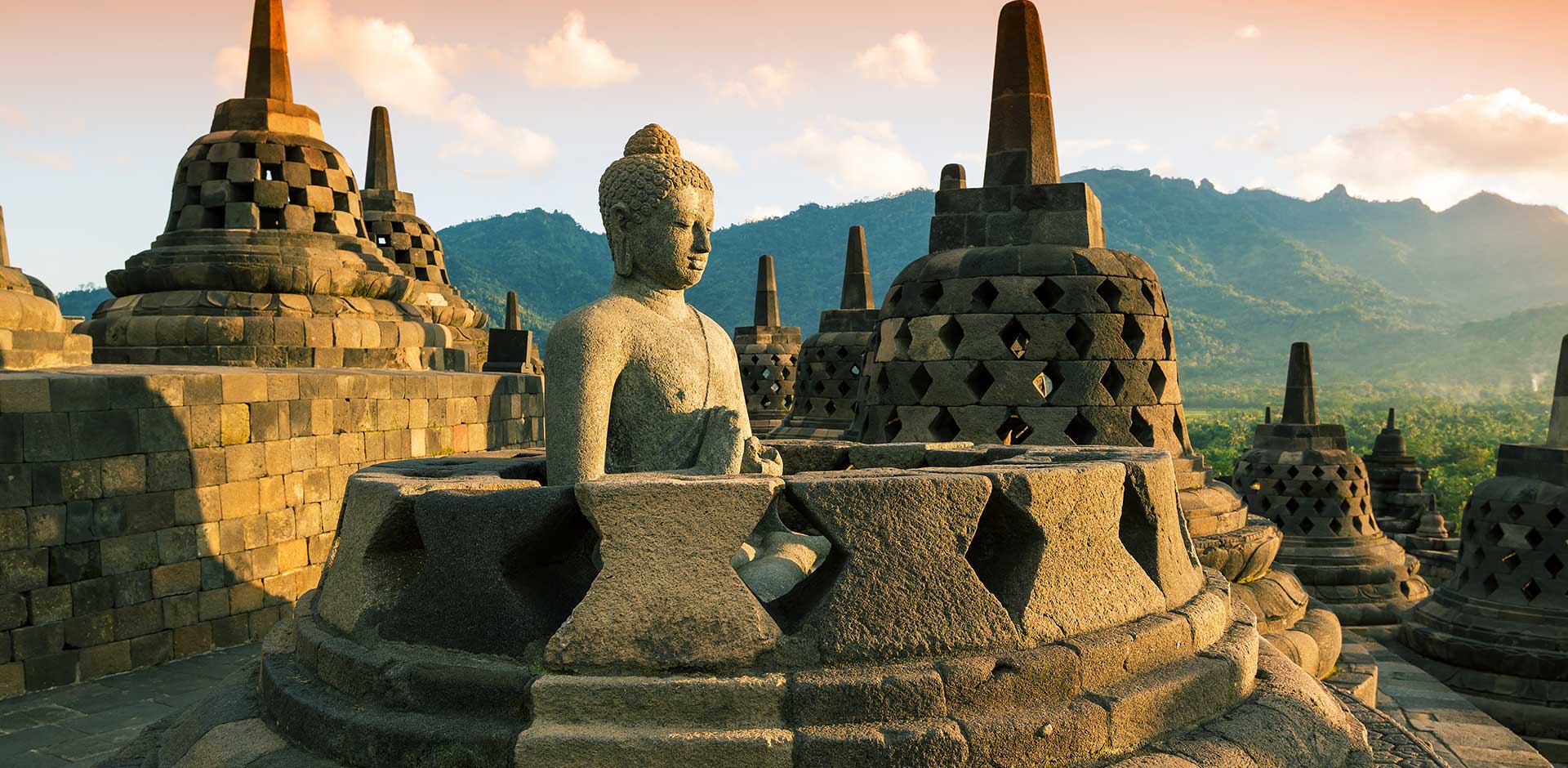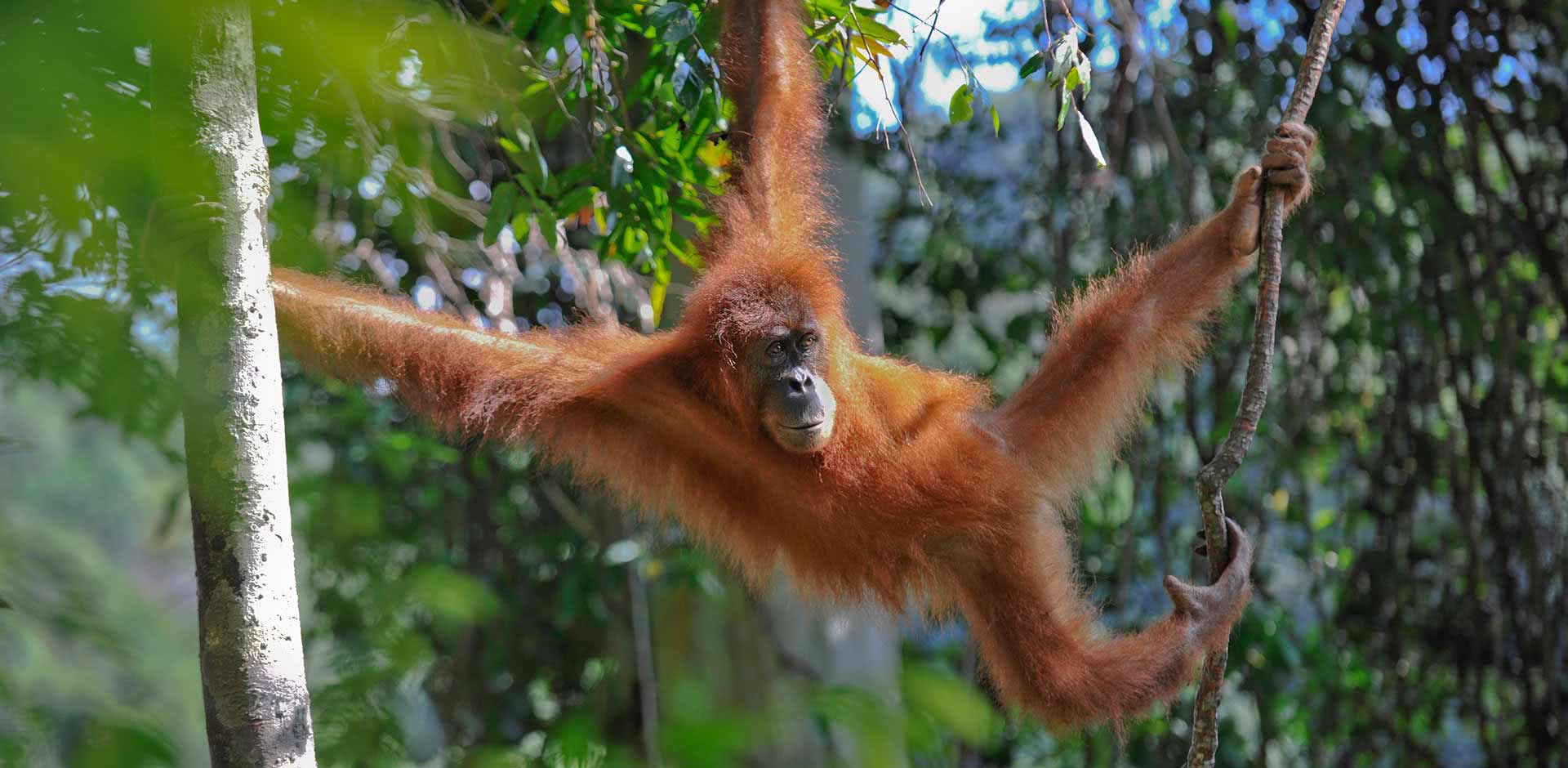“Listen,” says Oncy, our guide. “Can you hear these screams? They are the gibbons. For the Mentawai they are sacred and untouchable.”
In the middle of the rainforest of the island of Siberut, in the Mentawai archipelago, travelers can find one of the oldest and best preserved indigenous cultures in the world. First discovered to the Western world from the Dutch in the 17th century, the Mentawai of today are known for their sharpened teeth and tribal practices, one of the few Sumatra tribes open to overseas travelers.
With just 64,000 Mentawai in small settlements scattered along the coasts and main rivers, individuals and families branch out into the equatorial forest. They leave the villages along muddy trails and tree-trunk bridges for a simpler life of spirits and sacrifice.
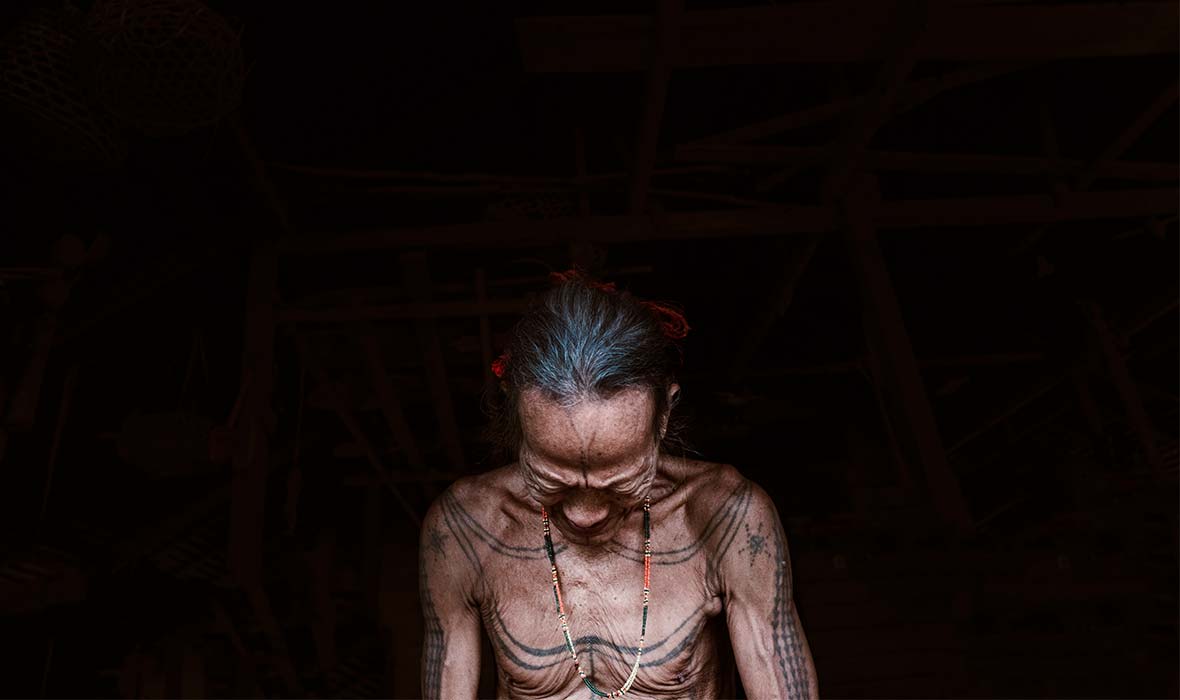
It is often the spiritualism with which travelers find themselves so enamoured when it comes to the Mentawai. The center of the animist Mentawai ways is the shaman, who chase away and invoke spirits using the plants of the forest. The shaman’s knowledge of the flora of the forest makes him an intermediary in the spiritual world and the afterlife.
For the fauna, it is not unknown for shamans to sacrifice monkeys at some ceremonies before cooking and eating them. The gibbons, on the other hand, are holy, precious, and untouchable. Shamans argue that gibbon’s hoots indicate the areas where the spirits dwell, and the scream is a warning.
The killing of a sacrificed animal has to be approved by the spirit itself, so it is always preceded by a ceremony that works as a request of permission. For the ceremonies involving sacrifice, tribal members show respect to the animals they kill.
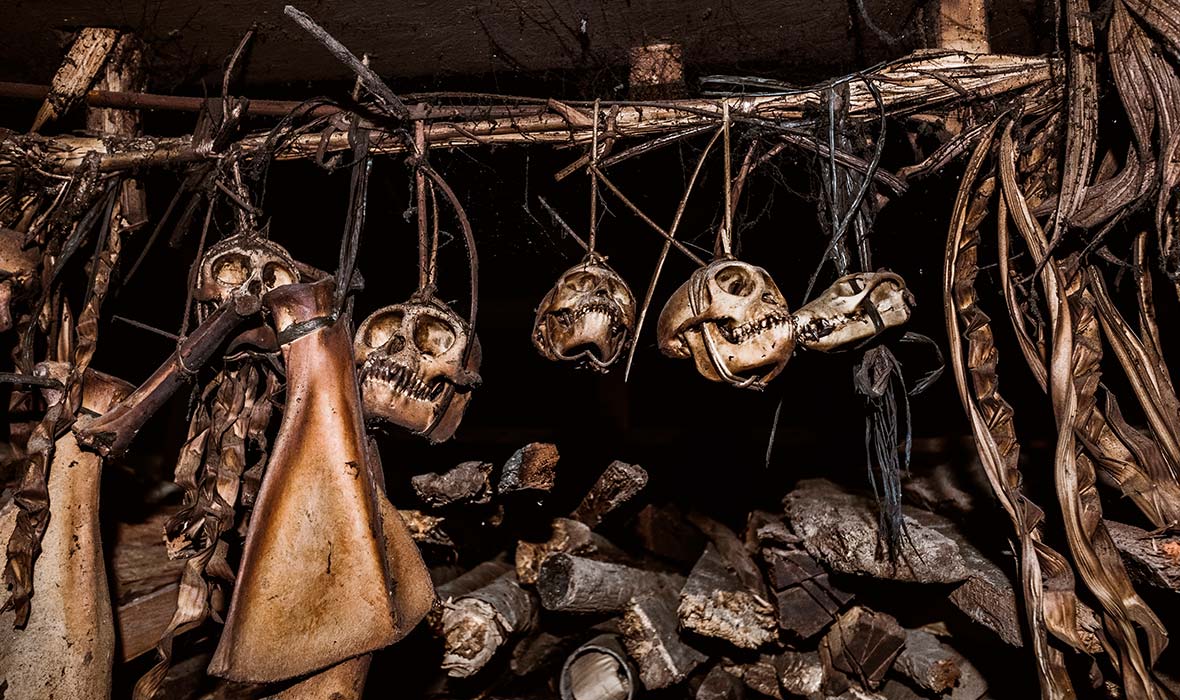
ABOVE: Monkey heads with the Mentawai.
During the transition from life to death, the slaughtered creatures are decorated with flowers and leaves; they also wash and pet the animal so that it will have a peaceful journey. The soul (ketsat) of any living and non-living being must be treated well. If this is not done, the soul, they say, is stimulated to roam freely around the body.
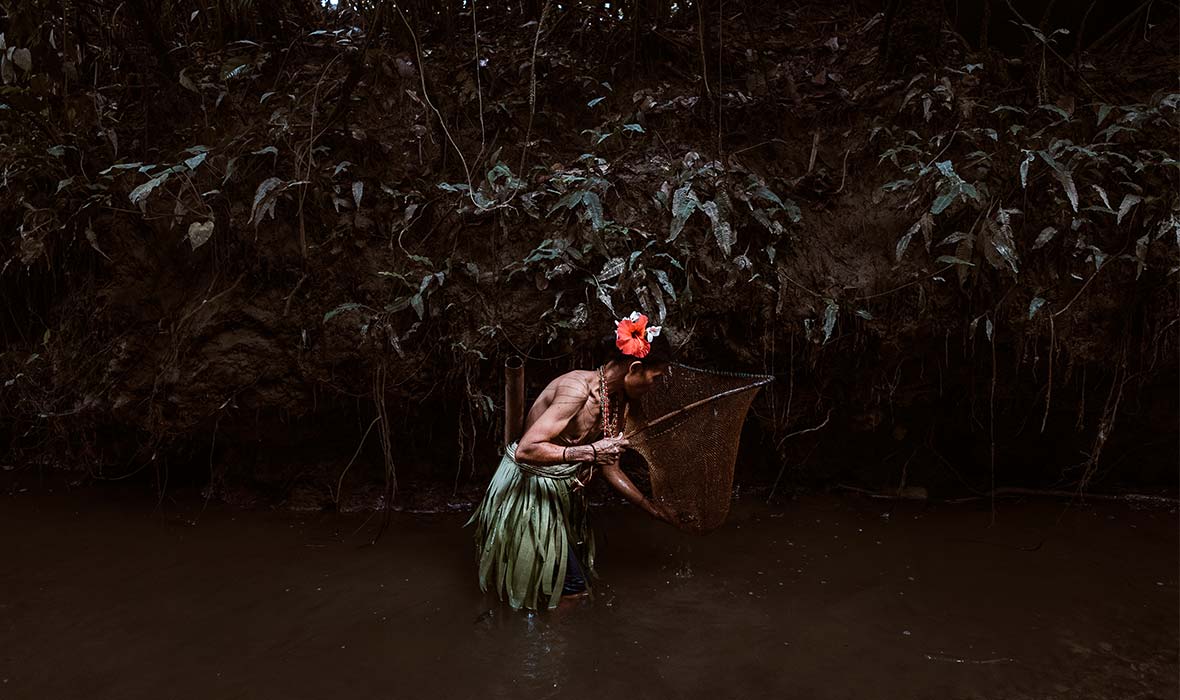
ABOVE: Fishing with the Mentawai.
After the killing, and after the animal has been eaten, its skull and feathers are hung on the roof of the hut so as to maintain the protection of the spirit. To remain on good terms with the spirits of hunted animals, the Mentawai follow codes of behavior; for example, before a hunt men my not sleep or bathe and must only eat fruit. These preparations are important to the Mentawai, and they can often consult lauru, a membrane that covers the intestine of the chicken, for divination. Through the branches of the veins one, it is said, can see the future. However, the Mentawai don’t really eat much game meat, as the muddy jungle soil is ripe with sago.
The heart of Mentawai tribal life are the Uma longhouses. Here, every adult member of the village is able to take part to meetings on community issues. Adult is a relative term, as once the Mentawai become “adult” they stop counting their age; when the body begins to show suffering and weakness, this is a symptom of seniority.
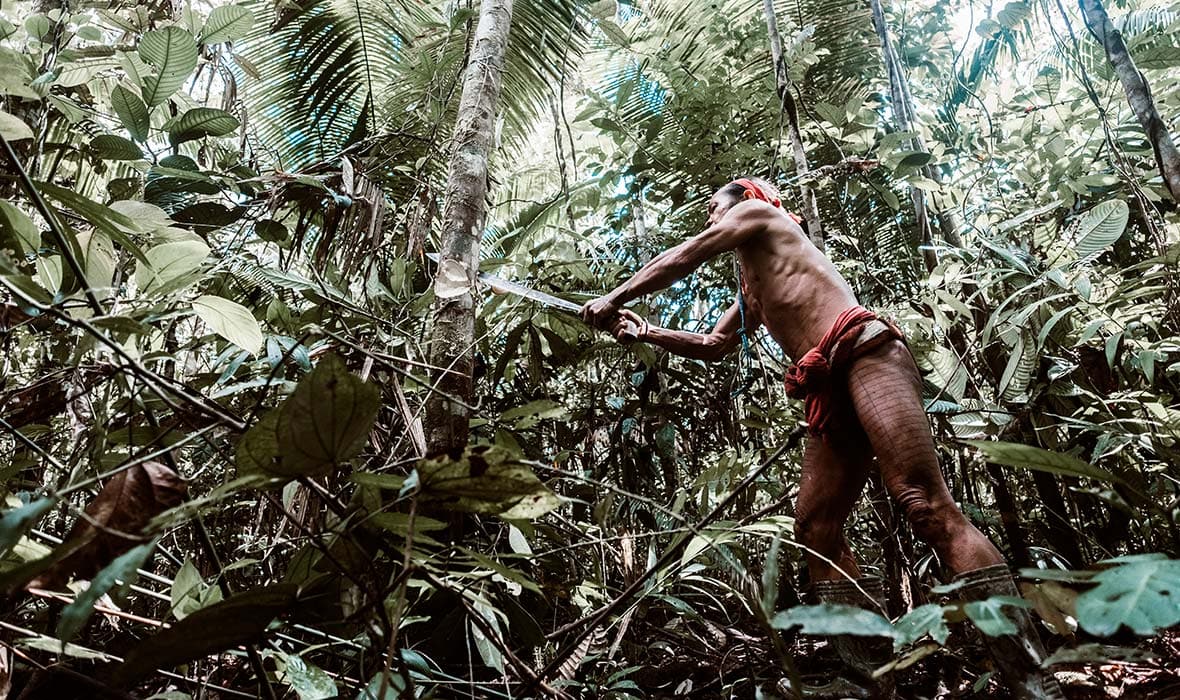
The Mentawai, experienced fishermen and sailors, consider themselves strongly connected with nature, a connection they show with their tattoo art. The art of “titi” (drawings) inherited from their ancestors acts as a kind of autobiography. The members of the tribe get their first tattoo as children and they continue the tradition throughout their life. The tattoos can have multiple meanings, but in general the titi express the maturity, clan memberships, strength as a warrior, and, as in the case of shamans, they invoke the protection of nature.
When a member of the Mentawai dies they are buried and their footprints are put on the wall of the house, a humble memento mori
The customs of the Mentawai, like many of the tribes of Southeast Asia, are under threat. The lure of the industrialized life puts a strain on the old ways. For the Mentawai, they believe future generations will continue learning the indigenous life, a life that only the jungle of Sumatra can give them.

